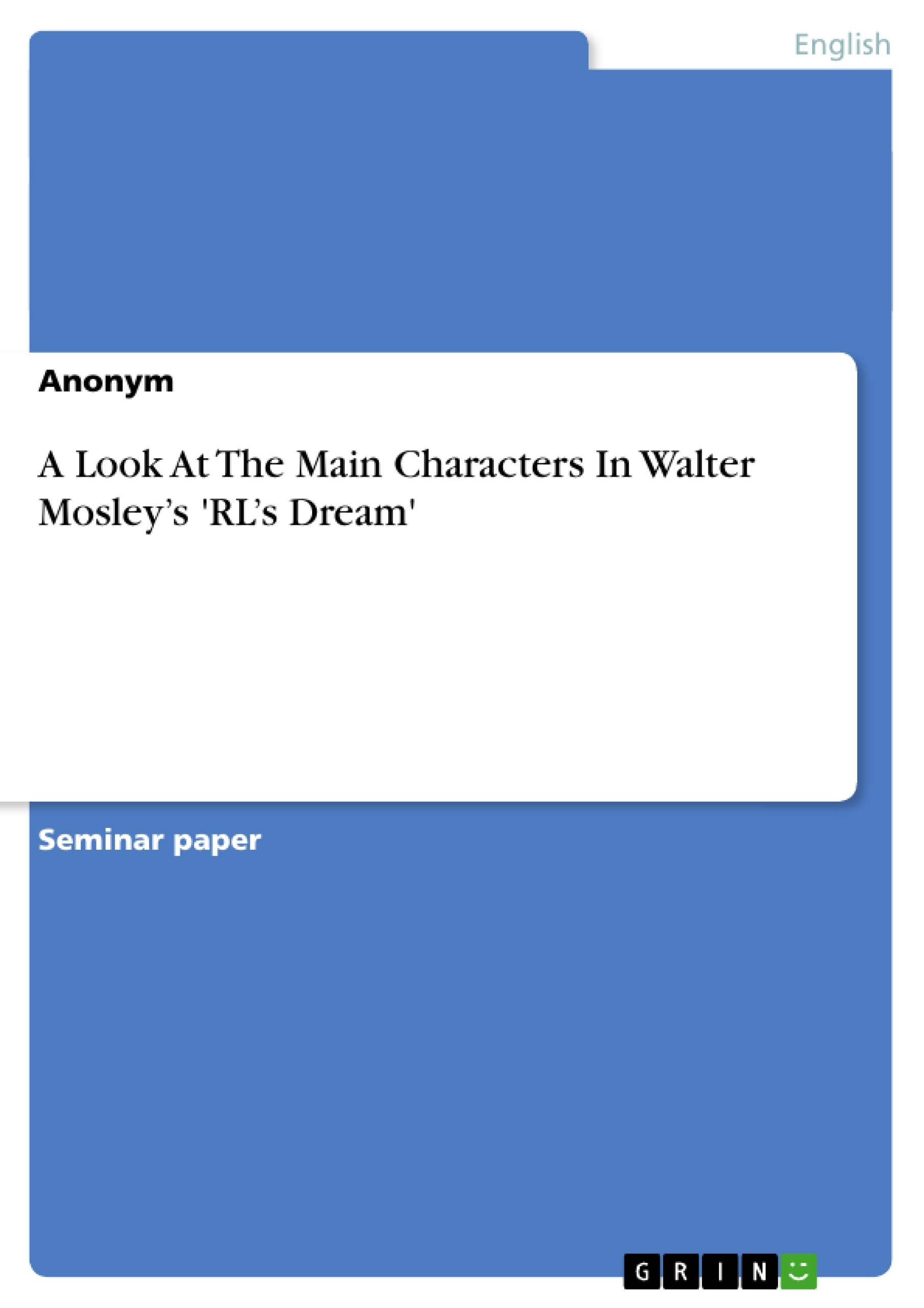The aim of this paper is to encourage reflection on Walter Mosley’s RL’s Dream. In the
first part, I will briefly present the author of the novel because I believe that it is crucial to
know the background of an author to fully understand his work. Walter Mosley, himself, is a
person of mixed parentage – just as the character of Randy. In his early childhood Mosley
might have struggled to find his identity – a topic, which is also very present in RL’s Dream.
I will then give a short synopsis of the novel in the second section before outlining the
particular style of narration Mosley uses and its relation to the blues.
The main part of this paper deals with characterization. I will take a closer look at Kiki
Waters, Atwater ‘Soupspoon’ Wise, Mavis Spivey, Randy and Chevette. All of the major
characters suffer from some kind of problem that has mainly to do with their experiences of
the past. I will shed light on the characters and point out their particular problems. I will
analyze the causes and attempt to interpret the character’s behavior.
Inhaltsverzeichnis (Table of Contents)
- Introduction
- Walter Mosley - the author
- A short synopsis of RL's Dream
- The narration and the blues
- Characters in RL's Dream
- Kiki Waters
- Atwater 'Soupspoon' Wise
- Mavis Spivey
- Randy
- Chevette
- Conclusion
Zielsetzung und Themenschwerpunkte (Objectives and Key Themes)
The aim of this paper is to encourage reflection on Walter Mosley's RL's Dream by examining the main characters and their experiences. The paper explores the author's background and its relevance to the novel, provides a brief synopsis of the story, and examines the unique narrative style and its connection to the blues.
- The impact of past experiences on present-day lives
- The importance of shared pain and healing through connection
- The blues as a form of emotional expression and catharsis
- The portrayal of marginalized characters and their struggles
- The themes of alienation and loss in contemporary America
Zusammenfassung der Kapitel (Chapter Summaries)
The paper begins by introducing Walter Mosley, highlighting his unique heritage and the influence of prejudice on his upbringing. It then provides a brief synopsis of RL's Dream, focusing on the relationship between Atwater "Soupspoon" Wise, a dying blues guitarist, and Kiki Waters, a troubled young woman. The synopsis emphasizes the characters' shared pasts and their journey of healing.
The next section delves into the novel's narrative style, highlighting Mosley's use of rhythm, time shifts, and the blues as a thematic thread. The paper explores how the blues serves as a powerful expression of shared pain and a source of catharsis for the characters.
Schlüsselwörter (Keywords)
The key themes and concepts explored in this paper include: Walter Mosley, RL's Dream, blues music, characterization, racial identity, alienation, loss, shared pain, healing, and contemporary American society.
Frequently Asked Questions
Who is the author of the novel "RL’s Dream"?
The novel was written by Walter Mosley, an author known for his diverse heritage and exploration of identity.
What is the central theme of "RL’s Dream"?
The novel explores themes of racial identity, alienation, loss, and the healing power of shared pain and connection.
Who are the main characters analyzed in this paper?
The paper examines Kiki Waters, Atwater ‘Soupspoon’ Wise, Mavis Spivey, Randy, and Chevette.
How is the Blues connected to the narration of the story?
The narrative style reflects the rhythm and emotional depth of Blues music, serving as a medium for catharsis and expression of the characters' struggles.
What common struggle do the major characters share?
Most characters suffer from traumatic past experiences that influence their present behavior and sense of belonging in contemporary America.
- Quote paper
- Anonym (Author), 2002, A Look At The Main Characters In Walter Mosley’s 'RL’s Dream', Munich, GRIN Verlag, https://www.grin.com/document/23480



